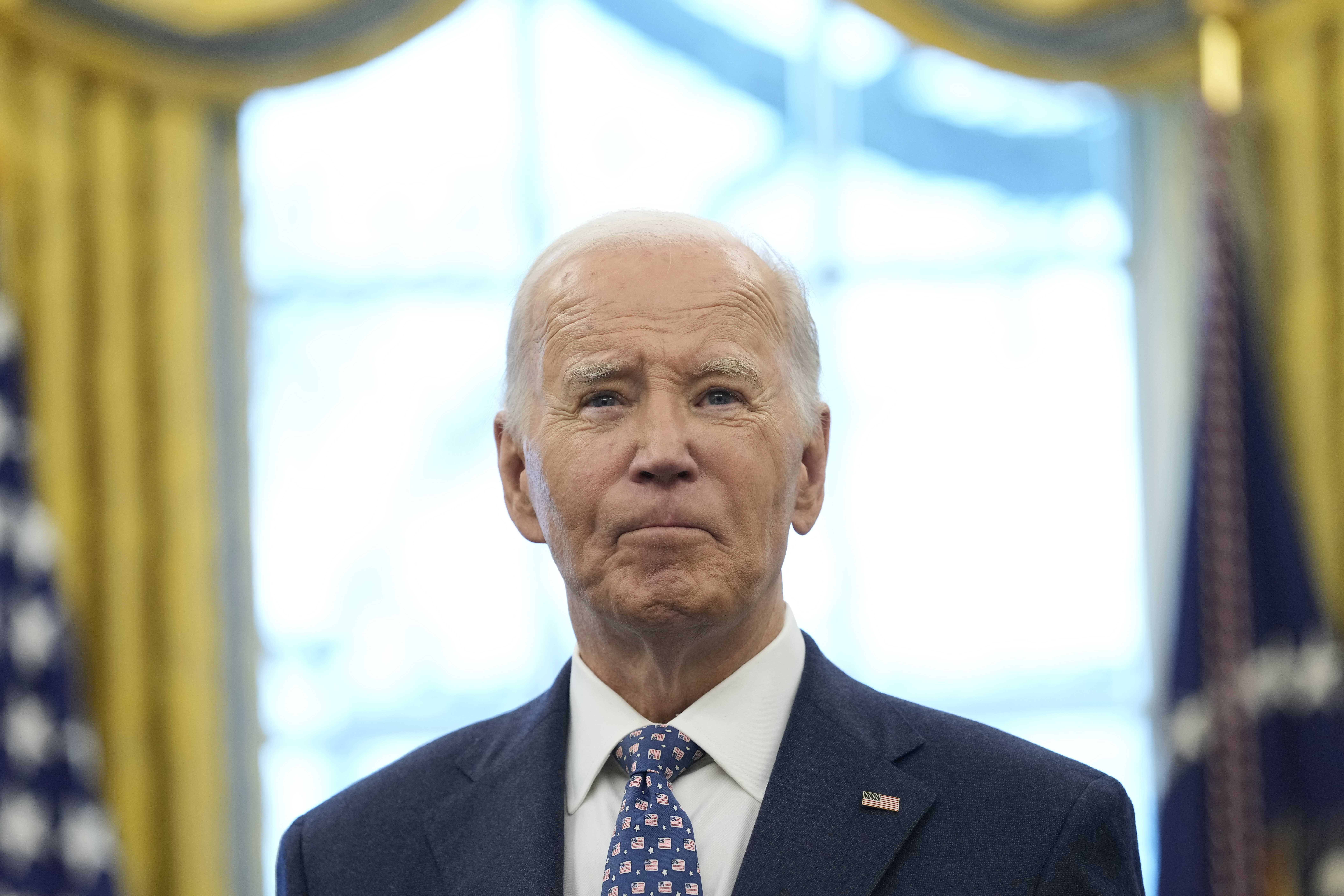War Or Peace? Trump Inherits Turbulent Us-china Ties

The United States and China appear destined for a military conflict, with bellicose rhetoric on both sides, an escalating arms race and Beijing widely considered the most serious threat to the U.S. since the Cold War.
That reality – facing President-elect Trump as he enters office this month – has spawned a heated debate over how to forge an alternate path that leads to peace.
The dominant view in Washington argues for peace through strength, that only clear military superiority can deter China’s ambitions to subsume Taiwan and exert dominance across the Indo-Pacific. But there is another movement, rarely heard in the halls of power, of people who want more dialogue and less escalation.
These peace activists, think tanks, arms control experts, professors, researchers and former diplomats describe tensions as the highest they’ve ever been and so bad it could erupt into conflict at any point in the near future. And they see the strategy of deterrence, espoused by China hawks in key roles under both President Biden and Trump, as creating a tinderbox amid global instability, while ignoring efforts to defuse tensions.
They say Biden’s military buildup efforts have eroded some diplomatic progress made through high-level talks: two meetings with Chinese leader Xi Jinping and the re-establishment of military-to-military channels. And they have deep anxiety about Trump, given his aggressive trade stance to China and hawkish Cabinet selections.
Lyle Goldstein, a visiting professor at Brown University’s Costs of War Project who studies the U.S.-China relationship, said the cost of a war with China was “incalculable,” and would at the very least sow mass destruction in Taiwan and the South China Sea region.
“You have two superpowers going at it with immense resources,” he said. “The losses could be horrific.”
But even if the U.S. were to avoid conflict with China over Taiwan, it is on track to spend trillions of dollars trying to deter Beijing, Goldstein said.
“We are unfortunately kind of spiraling toward a military conflict. I'm trying my darndest, I’m being very candid, to halt this slide toward conflict,” he said. “Because to be clear it's a catastrophe. And it's unnecessary.”
He said the U.S. should avoid a war over Taiwan, arguing it amounts to a civil war dispute and, for the U.S., a moral conundrum more than a national security risk. He compared it to Afghanistan, where the U.S. spent 20 years and more than two trillion dollars in a failed bid to shape the country.
Goldstein said that Washington and Beijing should engage in annual summits and the U.S. should rethink its One China policy.
Trump’s wild card
Trump has been far more ambiguous toward Taiwan than Biden, who repeatedly committed U.S. troops to protect the island should China invade. But Trump’s threats of a trade war with Beijing carry their own risks of ramped up tensions.
And Trump has selected China hawks for top posts, including Sen. Marco Rubio (R-Fla.) as secretary of state and Rep. Mike Waltz (R-Fla.) as national security adviser. Still, he also is close with billionaire Elon Musk, who has business interests in China.
But Trump, apart from a strike on Iran’s top general during his first term, has largely proven to be an isolationist focused on ending wars, and has expressed no interest in becoming mired in wars with China over Taiwan or the Philippines.
At a December press conference, Trump said the U.S. and China could work together to solve global problems. But Ian Bremmer, president and founder of the political risk consultancy group Eurasia Group, said Trump’s instinct to defuse tensions may be hard to pull off.
“It is severely constrained by how hardline Trump's people are,” said Bremmer. But China, he added, has domestic troubles with its economy. “The Chinese are more inclined to want to stabilize this relationship than certainly they were under Trump's first term. They're under a lot more pressure.”
Fred Bergsten, nonresident senior fellow and director emeritus at the Peterson Institute for International Economics, said Trump’s threats of a trade war were a double-edged sword.
“It clearly does accelerate the downward trend in the overall relationship,” he said, but noted that Trump’s first trade war with China actually led to dialogue.” I thought it was a promising approach to actually enhance diplomacy between the two countries, albeit in a context of confrontation.”
Bergsten said if the U.S. and China fail to cooperate, a lot of global issues could remain unresolved.
“The U.S. and China together are on the way to making up half of the world economy. No other countries are even close,” he said. “So unless they can get together, not much is going to happen constructively on a whole range of economic and global commons issues.”
Thomas Fingar, a lecturer at Stanford University and a former U.S. intelligence official, said
the U.S. has made China out to be a “boogeyman” in its quest to maintain unquestioned global dominance, a dynamic that risks tipping the countries toward a needless war.
“China is a big player that we bump up against everywhere in the world,” he said. “We want to stay king of the hill, and we can't both be king of the hill at the same time. But is that really necessary? Is war inevitable or our leaders in the two countries incapable of putting other interests ahead of bragging rights?”
Deterrence vs. escalation
Since China emerged as the world’s second largest economy in 2010 and later as the rival superpower to the U.S., it has forced a recalibration in Washington over the past few years to shift from counter-terrorism to confronting a Chinese military that now has a larger naval force than America.
Across the Indo-Pacific, the U.S. has built up alliances to deter China, uniting with Australia, the Philippines, Japan and other nations around Beijing to bolster defense ties, weapons production and military bases.
Critics have called these moves escalatory because it’s in China’s backyard, forcing Chinese troops to engage in what the U.S. has called the largest peacetime military buildup since World War II with an aim for a world-class military by 2049.
Jodie Evans, the co-founder of the anti-war activist organization Code Pink, said China is responding to the U.S. like any other country would to provocation. She argued China has been clear it wants to avoid conflict but the U.S. has been pushing through the “same playbook” it has used in the past, including in Iraq, to justify war.
“There is absolutely not one thing that would justify a war, that would justify the United States going to war in China,” Evans said. “Diplomacy takes talking. Diplomacy takes making real steps. Diplomacy takes creating trust. United States has a lot of work to do.”
Members of Congress have accused Code Pink of close ties to China, pointing to Evans’ husband, Neville Roy Singham, a millionaire who reportedly has ties to Chinese media. Evans disputed that characterization and accused critics of trying to discredit her organization’s anti-war advocacy with “lies” and “crazy nonsense.”
Many in Washington disagree with Code Pink and other anti-war activists, arguing that deterrence is best achieved in the motto of peace through strength. They have also blamed China for a lack of dialogue.
Randall Schriver, a commissioner at the U.S.-China Economic and Security Review Commission, an independent governmental agency that reports to Congress, said the U.S. and China were “fundamentally at odds” over key issues, and that Chinese officials have often stymied diplomatic efforts.
“We have a status quo power who's being challenged by a rising power that's trying to upset the status quo and trying to redefine regional security frameworks,” he said. “It would not be unreasonable to say that most of the problems originated from Chinese behavior and the Chinese assertiveness to try to disrupt the status quo.”
Schriver explained he wants more dialogue between the two countries, but that there are cultural differences and Americans tend to be “problem solvers” who want to solve issues that the Chinese may avoid engaging on.
The bigget fears of a military faceoff revolve around Taiwan. The self-governing island nation has been ruled by the government that fled the communist takeover in 1949, but China has always considered it as part of the mainland.
China’s leader Xi, who came to power in 2013, told Biden in a November 2023 meeting that Beijing would unify with Taiwan, by force if necessary. There are fears he may do so as soon as 2027.
The U.S. has largely maintained strategic ambiguity over going to war to defend the Taiwanese people, but Biden’s promises to defend the island have sparked Chinese aggression.
China has increased the pace of its military drills around Taiwan in recent years, particularly after former House Speaker Nancy Pelosi (D-Calif.) led a delegation to the island in 2022 and following the inauguration of pro-U.S. Taiwanese President Willaim Lai Ching-te in May.
Gaming out war
The cost of a war over Taiwan could be immense for both sides, even threatening the superpower status of the loser.
The best modeling to date over a Taiwan war game scenario is from the Center for Strategic and International Studies (CSIS), which in 2023 found that in most scenarios, the U.S., Japan and Taiwan defeated China but at the cost of “dozens of ships, hundreds of aircraft, and tens of thousands of servicemembers.”
There are other scenarios: China could be easily defeated, avoiding mass American casualties; the U.S. could lose, suffering an immense blow; or there could be a stalemate.
The results depend on a wide range of factors, including the will of the Taiwanese people to resist, if China launches a direct attack or a blockade, whether Japan and other allies join the fight or enable the U.S. to use key bases, and how soon American troops enter the fight.
The majority view in Washington, however, is that it’s a moral duty to prevent the forceful absorption of Taiwan from a communist government that has eroded human rights with takeovers in Tibet and Hong Kong and the suppression of the Uyghur minorities.
Allowing China to take Taiwan would also be an economic and geopolitical blow for the U.S., since Taipei is the primary source of semiconductor chips that power smart devices and a friendly economical hub in the Pacific.
Still, experts, activists and nonprofit officials have said Taiwan is not impossible to solve through diplomacy. And some say the U.S. has strayed too far from its adherence to the “One China” policy, which officially recognized Taiwan as part of China.
Michael Desch, professor of international relations at the University of Notre Dame, which runs an institute on international peace, said there’s an obvious tension between that policy and U.S. support for increasing democratization on Taiwan.
“The question is, can you manage it so it doesn't get out of control?” he said. “We got to go back to the sort of diplomatic status quo of the 1990s. No Taiwan independence, no Chinese invasion and continuing U.S. recognition of One China.”
Schriver, with the independent governmental commission that reports to Congress, said the U.S. and China are likely to hit “stale talking points” to address the issue diplomatically. He pointed to the need for more dialogue between Taipei and Beijing as the countries have not engaged each other since the Obama administration.
Nuclear arms race
The worst-case scenario in an escalating conflict between the U.S. and China would be either side turning to nuclear bombs.
The U.S. has more than 5,000 nuclear warheads, and China has some 600 but is rushing to quickly stockpile more, with the aim of at least 1,000 by the mid-2030s, according to the Pentagon.
Both the U.S. and China are also racing to modernize their nuclear arsenals and deploy more dangerous new weapons like autonomous drones. China’s military also can now launch nuclear weapons from submarines, aircraft, vehicles and missile silos.
To combat this, Biden in March approved a highly classified U.S. nuclear strategic plan that shifts Washington’s deterrent strategy to focus on Beijing's fast expansion of its nuclear arsenal, the first time the U.S. has done so.
Nuclear arms control activists have long warned that a war between the U.S. and China poses an incredible risk of a nuclear escalation.
And a new tabletop exercise, details of which were released last week, found that a further build-up of U.S. nuclear capabilities would have limited effect on whether China might use its own nuclear weapons should a war over Taiwan erupt.
The first large-scale war game of such an incident, conducted by the CSIS and a war gaming lab at the Massachusetts Institute of Technology, found that a U.S. build-up that goes past current modernization plans would not bolster nuclear deterrence in relation to Taiwan.
U.S. policymakers should not “develop additional nuclear weapons for a conflict with China beyond current nuclear modernization plans” and “not pursue quantitative nuclear superiority in the expectation that it would deter China from using nuclear weapons,” the authors write.
Yun Sun, the director of the China program at the Stimson Center in Washington, said there is no definitive answer on whether China may use a nuclear weapon in the event of conflict over Taiwan.
“Will they use nuclear weapons? I think from a military planning point of view, you will have to assume that they will, because a military planner will have to plan a budget for the worst-case scenario, and that is the worst-case scenario,” she said.
China, meanwhile, rejects U.S. concerns about its aims to further develop its nuclear forces, accusing Washington of using it as an excuse to grow its own nuclear arsenal.
Maritime flashpoints
Besides Taiwan, the U.S. and China remain fundamentally at odds over the South China Sea, which Beijing claims almost entirely as its own despite an opposing 2016 international court ruling. China has built up naval bases on artificial shoals in the Spratly Islands to bolsters its presence.
The Chinese claims have led to disputes with U.S. allies across the region, but mostly with the Philippines, which Washington has had a defense pact with for decades.
In the past few years, China has grown bolder in its spats with the Philippines over disputed reefs and shoals, attacking Filipino sailors and ships with water cannons, lasers and even, in an incident over the summer, with machetes.
While the U.S. has committed to defending the Philippines if it comes to it, there is some caution in foreign policy and national security circles over going to war with China over disputed reefs that are not part of the Filipino mainland.
Some critical observers also say that the U.S. could do better in engaging with China over the South China Sea, arguing it is not an irreconcilable crisis.
Robert Daly, the director of the Wilson Center's Kissinger Institute on China and the United States, said the U.S. needs to be more careful in how it manages tensions in the Pacific and understand “China has a right to feel secure.”
“The goal is not to go to war. China has ... legitimate security interests that they're certainly going to pursue and defend, as do we,” he said. “And so the question is finding agreements that allow us to do that peacefully.”
Whose world order?
The U.S. and China remain at odds on several other issues, but perhaps most salient is on how the world system should work.
Under Xi, China has become more authoritarian, and Beijing has drawn closer to like-minded countries, including Russia and Iran, drawing intense hostility from Washington that sees this loose coalition of dictatorial nations as bent on creating a more dangerous and volatile multipolar world.
But the U.S.-led liberal world order has also led to grievances from developing countries and the Global South, who have long taken issue with being left behind by an international economic system rife with inequalities. China has stepped into the void, financing projects in those countries under its contentious Belt and Road initiative that, while investing in other nations, has also been criticized for leaving them in debt.
Still, China has steered the framing of an alternative world order through BRICS, an economic organization helmed by Brazil, Russia, India, China and South Africa.
But for critics of U.S. hawkish views toward China, even these vastly opposing world views are not unsolvable.
Warren Cohen, a distinguished emeritus university professor at the University of Maryland Baltimore County who has long taught diplomatic studies, said China is not closely aligned with Russia or Iran, describing it more as a practical relationship.
He also said that Chinese interests don’t “extend around the world other than making some money.”
“They're not looking to take over the world order in the sense that the United States dominates it. They would like to weaken American control, they would like their part of the world to be free of an American presence, if possible, but I think that's as far as it goes with them,” he said.


